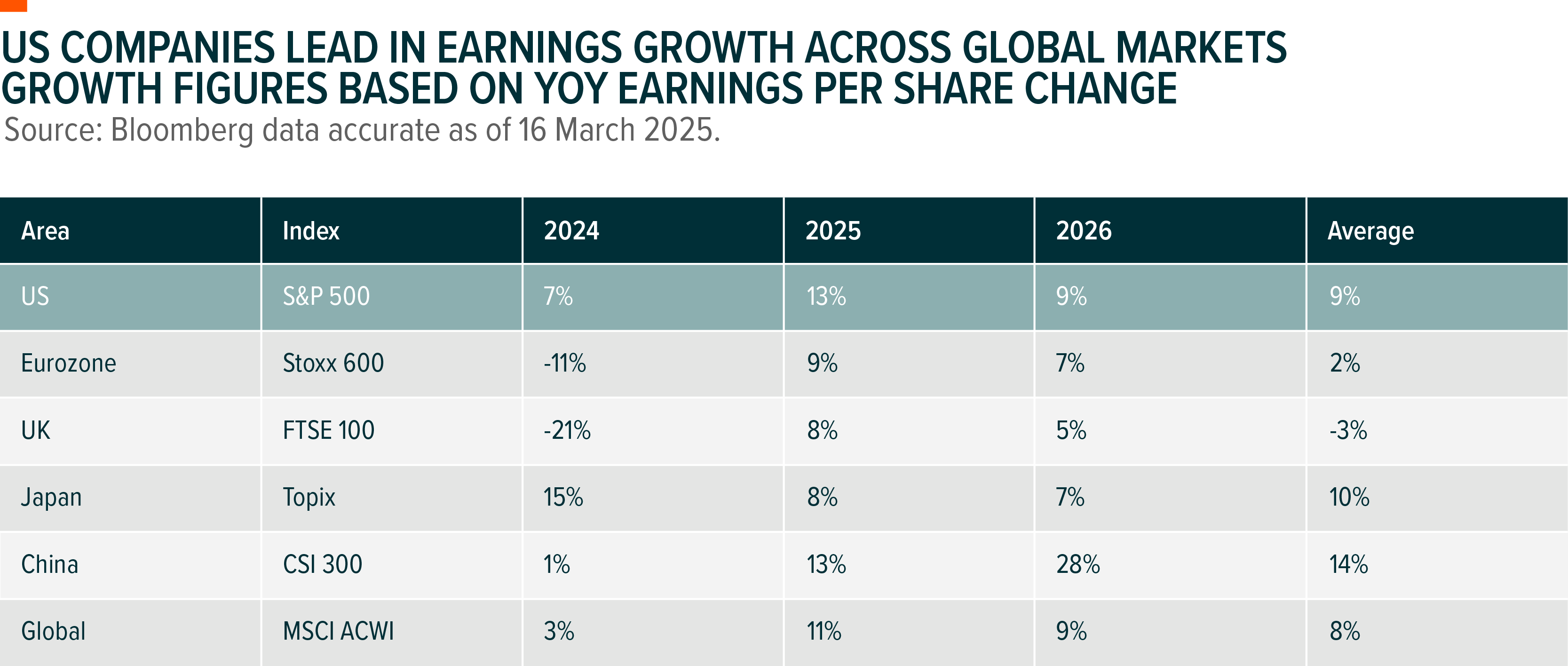Reassessing US Exceptionalism: A Strategic Approach, Not Blind Optimism
Ultimately, US exceptionalism remains a key foundation for investment decisions, but its trajectory will depend on whether policy execution can balance pro-growth initiatives with ongoing volatility. The resilience of the US market is demonstrated through its ability to absorb policy-induced volatility while maintaining structural economic advantages. Although short-term uncertainties prevail, the convergence of earnings growth between mega-cap leaders and the broader market signals a healthy diversification, offering long-term stability.10
Investors acknowledging the intersection of policy tailwinds, sector-specific dynamics, and resilient fundamentals will find themselves well-positioned to capture future market upside. Despite near-term volatility, structural trends indicate opportunity rather than prolonged market distress, underscoring the strategic strength of US exceptionalism as it evolves through Trump’s second term. If there’s one thing I’ve learned over the years, it’s that the more I know, the less I understand. Markets often move in ways that defy simple narratives, but recognising where structural advantages persist is what ultimately matters.
Navigating a Volatile World: Strategic Solutions for Investors
Investors seeking US equity exposure with a more defensive posture amidst tariff-related volatility may consider the Global X S&P 500 High Yield Low Volatility ETF (ZYUS). Unlike the broader S&P 500, ZYUS tilts heavily toward lower-volatility, dividend-rich sectors. It is notably overweight Real Estate (+16%), Utilities (+12%), Consumer Staples (+10%), and Materials (+7%) relative to the benchmark. At the same time, it holds negligible exposure to Information Technology (0% vs ~30% in the S&P 500), reducing sensitivity to high-beta growth sectors.
Additionally, investors seeking exposure beyond mega-cap technology stocks can consider the Russell 2000 Index, which provides targeted exposure to small and mid-cap US companies. The Russell 2000’s domestic revenue base and broad sector diversification position it favourably within the current policy environment, capturing opportunities from deregulation, manufacturing incentives, and tax advantages specifically aimed at domestic growth. This aligns closely with the evolving themes of Trump’s second term, allowing investors to effectively capitalise on long-term US exceptionalism without excessive concentration in large-cap technology.
Rather than abandoning US equities amid short-term challenges, these strategic investment approaches enable investors to refine their positions thoughtfully positioning for resilience and growth over the full course of Trump’s second term. With roughly 46 months still to run, markets have ample time to come full circle, as early volatility gives way to policy stabilisation and long-term pro-growth themes begin to take hold.











